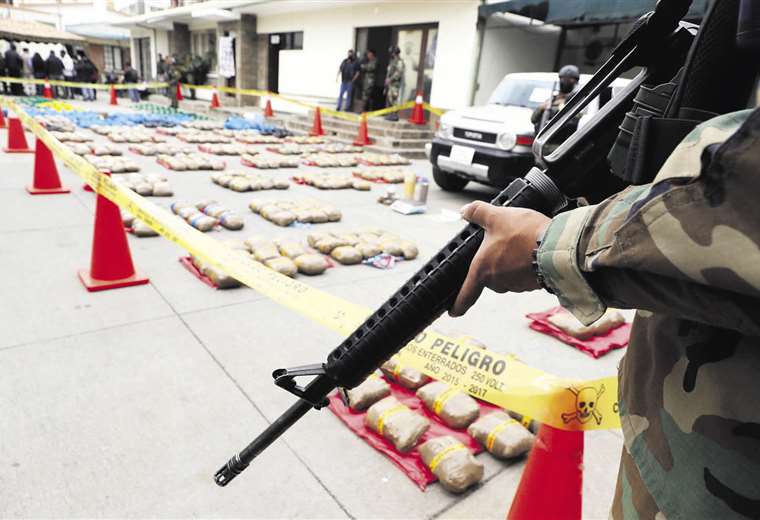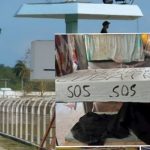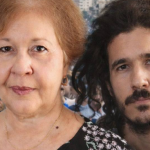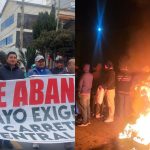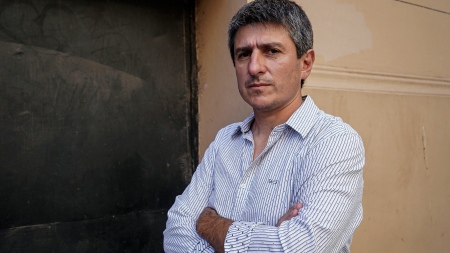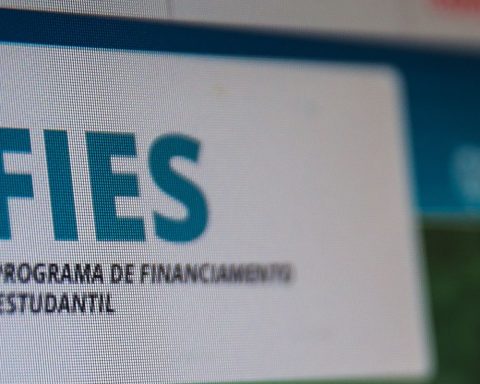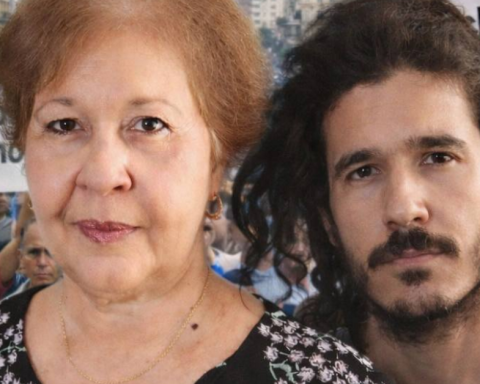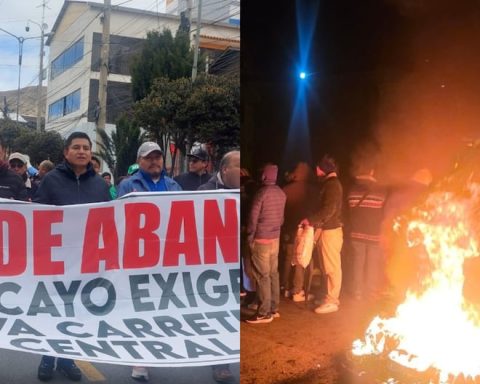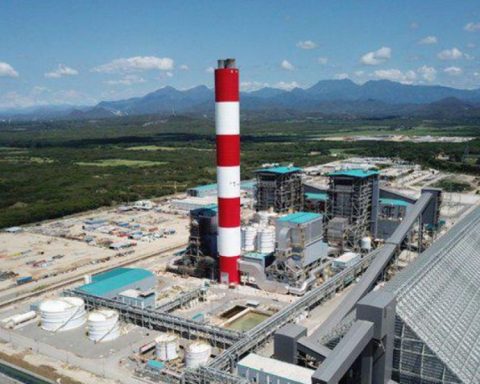The recent blow to drug trafficking in Chapare, a region historically defended as a zone free of this crime by Evo Morales, is due to more anti-drug operations and greater deployment of police officers, according to the commander of the Bolivian Police, Orlando Ponce. However, for political scientists and experts the latest seizures are a “sham” for the few detainees. Likewise, they consider that there is protection for drug trafficking and an internal war between the MAS blocs for geographical control of the distribution and production of cocaine.
“Throughout the country there were important seizures, practically every week (cases) are being presented to the Special Force to Fight Drug Trafficking (Felcn) (and the number of seizures increased) because the operations and activity of the police have increased. police officers”. That was the response of General Ponce from Chimoré, before the consultation: to what are the latest seizures in the Cochabamba tropics attributed?
This month and in less than a week, the Felcn seized 892 kilograms of drugs found in the Chapare province, Cochabamba. According to the Ministry of the Interior, “different operations deployed by the forces of order made possible the seizure of the illicit substance dealing a heavy blow to criminal organizations dedicated to the production of narcotics”.
The report states that on January 13, members of the Mobile Rural Patrol Unit (Umopar) of Chimoré found a house located in the municipality of Villa Tunari, where they found 734 nylon bags filled with cocaine, in addition to firearms and ammunition.
This confiscation was followed by the “Papagayo I” and “Papagayo II” operations, also carried out in Chapare. Police officers from the Special Operations Intelligence Group (GIOE) managed to seize more than 160 kilograms of cocaine between January 17 and 18. To this was added the destruction of two mega cocaine laboratories valued at $250,000.
But these operations, from a political point of view, aroused the concern of experts who see the seizures with the intention of removing Evo Morales from the political scene. There is not only amazement because Chapare was and is an area defended by the former president as a place where union control prevails to prevent drug trafficking.
According to the journalist and analyst Carlos Valverde, “politicizing the ban to remove Evo Morales from the political space can provoke the same resistance that was generated and allowed him to grow as a leader. It’s one thing that he Government acts for state purposes and a very different one that uses that power and argument to take political power away from Morales. Why not even get him out of the area?” he wrote in his opinion column.
He is not the only one who questioned these facts, since last year a series of accusations arose from the Six Federations of the Cochabamba Tropics against the Minister of Government, Eduardo Del Castillo, for supposed protection of drug trafficking.
Edwin Cacho Herrera, a former assemblyman, believes that the anti-drug operations carried out from January 13 to 23 “seem like crossed complaints from the drug cartels that operate in the country to affect each other, in a sort of rearrangement of the illicit business with the intention of to win more ‘work areas’, together with the probable government decision to affect the production of narcotics in Chapare, Morales’ kingdom”.
He added that although more than two tons of drugs were confiscated in 10 days, the number of detainees barely reaches five: two Bolivian pilots in Misiones and a transporter in Isla Aranda, Paraguay; two other Bolivian carriers, one in Chile and the other on the La Paz-Oruro highway.
“There was not a single detainee in the Villa Tunari operation, despite the 730 kilos of cocaine and weapons seized. Either there were arrests in the intervention and destruction of two mega-laboratories, on January 20, which were about to work in a place with difficult access in Chapare, Cochabambino”, he pointed out.
Retired police officer Waldo Panozo, who knows the Chapare area and was part of several anti-drug operations, agrees with Herrera when observing the lack of detainees. He stated that those arrested normally They are the “pawns” or “mules” of drug traffickingTherefore, it considers that the fight against drug trafficking is not serious and described it as a “farce and mockery” by the Government.
Panozo recalled the days of former State Minister Fernando Barthelemy, when Chapare had become the laboratory for cocaine base paste and small planes landed on the highways to deliver the drug. “Today the same thing happens,” he emphasized.
“At that time there was government protection with the help or cover-up of the police. That same thing is happening. So, to whom is the operation carried out? To those who are not complying with the line drawn by the power group that is in Chapare, that is, the Six Federations. If they find other groups having a competition of the production of cocaine base sulfate, the same ones from the Federation denounce them, but not the union members or those who have protection,” Panozo said.
For his part, the executive of the Chapare Yungas Federation, David Veizaga, stated that the anti-narcotics uniformed “planted” the 732 kilos of cocaine and four firearms in Villa Tunari.
“What the Minister of Government says is not valid because he plants the cases of corruption and drug trafficking; furthermore, he plants people for frame the leaders of the federation and the region. The intention is to discredit the Federation of the Tropics, ”he said.
For Waldo Panozo, the operations are a “screen”, since they are carried out in front of the press and with the presence of State authorities, which he considers a “prepared scenario” and not very serious.
“It is a screen when they show us an armed operative and in front of the press. The internal war for the geographical control of the distribution in the production of cocaine is divided between the group of the lord Evo Morales and the other sidethrough Minister Del Castillo and the Vice Minister of Substances (Jaime Mamani)”, he assured.
Panozo, Herrera and Valverde also observed that to date there is no report on the progress of the investigations and the fate of the 800 kilograms of cocaine who disappeared in Beni in full view of Minister Eduardo Del Castillo.
